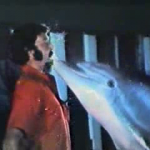When progressives attack Super PACs, are we saying average voters are too stupid to make up their own minds when faced with these ads? So what are progressives to do? Think about the campaign against smoking.
Welcome to episode 9 of Progressive Way
The opening clip is from a 1970’s era PSA by the American Lung Association. An anti-smoking meme to frame this podcast, and one that betrays your age if you remember the spot.
It has been a while since I’ve posted on Progressive Way. The road to hell is paved with podcast intentions, at least for me.
But for elections, progressives see Hell’s road as paved with Citizens United and Super PACs, a biblical locust plague of money moving through our primaries and soon general elections, eating democracy in its path. Corporate money is the villain, bending public opinion and election results to its will.
My problem with this view is that it betrays bias and ineffectiveness in progressive thought as much as it critiques our elections. The question progressives never answer is –how does this money do anything bad? Is Super PAC spending really moving anyone to think or vote differently?
When progressives attack Super PACs, are we saying average voters are too stupid to make up their own minds when faced with these ads? The wider electorate, I fear, sense condescension more than genuine concern in what we say, if they hear our concerns at all. According to Pew Research Center, only half of voters are aware of Citizens United.
So what are progressives to do?
William Klein, my co-conspirator campaign manager behind the Murray Hill Incorporated for Congress campaign pointed out the only sustained public opinion campaign that truly changed behavior in the United States was the campaign against smoking. This notion has stuck with me for a few weeks. Think about the campaign against smoking. It started the details about what smoking did to smokers, the lung cancer and heart disease. But the real change in opinion, and laws against smoking in public, really took off with the notion of second-hand smoke.
You can choose to kill yourself with smoking, but don’t kill me.
Progressives would benefit from mediating on Citizens United, not as a public policy problem, but as a public health problem. How does this money and the resulting ads effect political health? How do these ads create second-hand smoke-filled rooms that injure democracy? Then, we can form an approach that interferes with the consumption of SuperPac ads and minimizes their influence.
Voters do not like being told that any speech is bad for them, which is what progressives have done attacking the wealth behind the speech, and not crediting voters with the intelligence to make their own decisions But progressives know this money is inherently damaging to the democratic process. So how can we move voters to doubt these ads and fight their existence? Here are some second hand smoke perspectives on this problem.
Super PAC ads are overwhelmingly negative. It is a fact that negative ads do not change minds, so much as they discourage people from voting. A Super PAC ad targeting Obama or Romney is really meant to decrease the likelihood of supporters turning out to vote. So, Mr. Voter, you are smart enough to see through these ads, but they do keep people–voters who would vote for your candidate–away from voting.
Another direction, one of equal access. The rush of huge sums of money, no matter how genuine the speech is, crowds out other voices. It literally drives up the cost of reaching voters when advertising prices are inflated by such a large demand. How can the average candidate compete with adverting budgets the size of Walmart’s?
Now, no matter the direction, Progressives need to make a better case that respects voters if we are to change attitudes towards corporate spending in politics.
The campaign against smoking would not have worked if it had simply talked about bad tobacco corporations. A case had to be made, a compelling and factual case, that provided information and motivation to change smoking behavior.
We have to convince America that a Super Pac is really just a pack of cigarettes and we need to keep its second-hand smoke out of our elections. The tag line from that old American Lung Association anti-smoking PSA was “Do you mind very much if they smoke.” We need to mind, and we have to talk with everyone about why they should care.
Thanks to you for the download and listen to this podcast. The music for the podcast is from Andy Cohen on Earwig Music. Thanks again and take care.




Share Your Thoughts